Jim Davis’s comic strip character Garfield is one of the most loved cats in the world.
Based on the shape of Garfield’s face and by looking at his fur pattern we can tell that Garfield is an Orange Coloured Persian Tabby cat.
Contents
Where does the Tabby Persian come from?
This loving feline hails from Iran. Persian cats have a long history, and they were bred extensively throughout the 19th century.
At the time, they were mixed with other breeds, also known as Asiatic cats, which originated in Afghanistan and Turkey.
There are a lot of variations when it comes to the appearance of a Persian Tabby cat, but most have easily distinguishable markings, whether they are classic, patched, or anything else.
Some can be mostly orange, but others might have streaks of different colours such as cream, red, silver, and even blue.
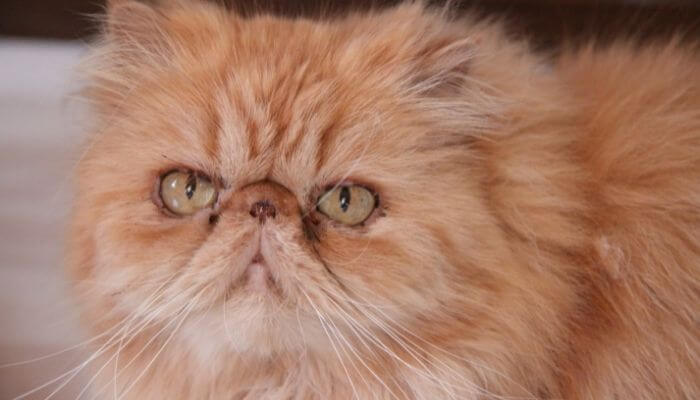
Garfield is considered a Tabby Persian as he has a specific colour pattern on his fur, but also the classic M shaped marking on his forehead.
Garfield Cat Breed Personality
Even though Garfield, the comic strip character, isn’t necessarily the most ‘lovable’ cat for reasons that we all know, Tabby Persians are actually quite sweet.
They’re loving and friendly, and they are known to get along with most people, whether children or adults.
Moreover, they appreciate having a feline companion around, especially in households where they tend to be left by themselves for long hours.
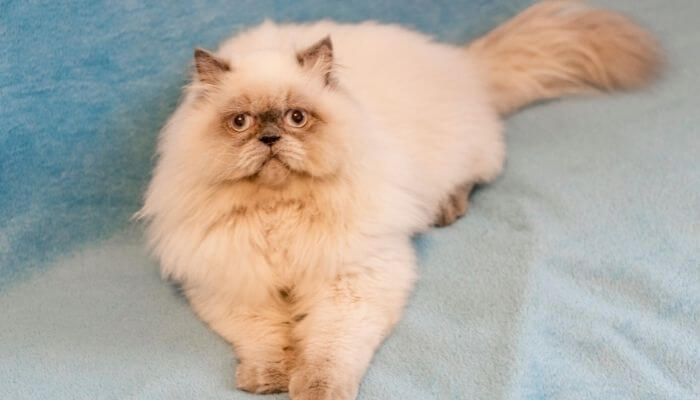
While they aren’t lap cats like Ragdoll cats are, Tabby Persians are quite calm and have nothing against lazing around all day, watching their owners go about their business as usual.
In most cases, this breed does not create a lot of problems, and it is fairly easy to care for. One thing that we do have to note is that they tend to thrive in somewhat quiet environments.
They do not appreciate loud living situations, and some can get scared and hide until they are sure that whatever they might consider a danger has disappeared.
Furthermore, they do not tend to do particularly well when they are separated from their owners for a long time, although cases of separation anxiety in this breed are fairly rare.
Size and weight
Persian Tabbies can come in a wide array of sizes and weights. Most are small to medium-sized, and they have a weight within the range of 7 to 13-14 pounds.
They aren’t particularly tall or large, either, and their height can be anything between 10 and 15 inches.
It is quite difficult to predict how large a Persian Tabby kitten will grow up to be. Her parents are a good indication of her possible size and weight, but she could also inherit other traits from her distant ancestors.
Spaying and neutering don’t typically affect a cat’s size unless the procedure is performed before the age of 5 to 6 months.
Persian Tabby Health
As lovely and affectionate as they might be, Persian Tabbies aren’t the healthiest cats in the world.
In fact, some studies suggest that about 65% of all Persian cats have at least one disorder.
The most common ones they can inherit or develop are the following:
1. Dental disease
The dental health problems that Tabby Persians can be born with or develop are due to their unique head shape.
Since they are flat-faced, their teeth do not grow in the same way they do in other breeds. Tooth extractions aren’t uncommon in Persians, which can make feeding somewhat difficult.
Caring for your feline friend’s oral health is very important, and while most cats do not like having their teeth brushed, it is a task that has to be performed.
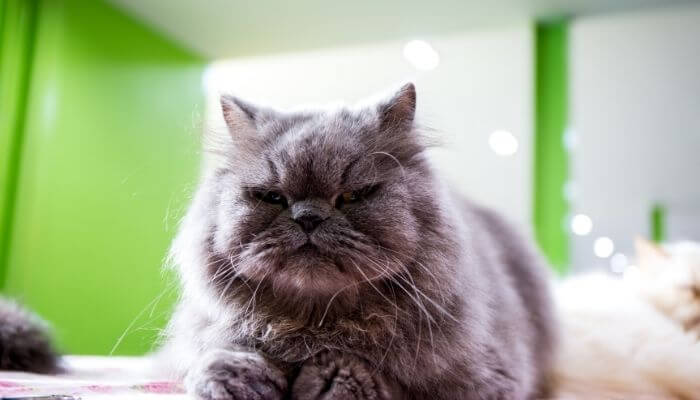
Otherwise, if your Tabby Persian ends up suffering from periodontal disease, she might lose all of her teeth and even develop secondary health issues such as heart disease.
2. Kidney disease
Tabby Persians are predisposed to experiencing a variety of urinary tract issues ranging from bladder stones and bladder infections (cystitis) to polycystic kidney disease.
Polycystic kidney disease (PKD) is a hereditary condition that eventually leads to kidney failure. Most cats that inherit it from their parents begin experiencing its symptoms between the ages of 7 and 10.
3. Progressive retinal atrophy
Although it was believed until fairly recently that chocolate or pointed Persian lines were more likely to inherit PRA, it seems to affect all Persian varieties, including tabbies.
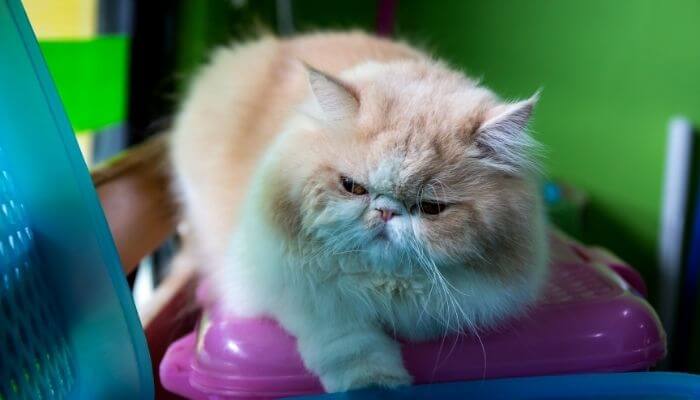
Given that the prevalence of the condition in the breed remains unknown, it is impossible to predict whether a kitten will be born with it or not.
PRA causes severe vision problems in kittens to the point that they can become completely blind by the age of 15 weeks.
4. Respiratory issues
Flat-faced breeds have a bit more difficulty breathing compared to others, which means that the air in their living space has to be clean and fresh at all times. They’re particularly sensitive to hot weather.
If they do develop respiratory conditions, they can be life-threatening as these cats’ brains might not receive enough oxygen.
5. Obesity
Due to their calm nature, Persian Tabbies are likely to put on weight easily, especially when compared to other types of cats.
They aren’t as energetic and will not engage in play as much as other breeds, so their weight has to be kept in check.
Obesity can be quite dangerous for cats as it makes them prone to developing other health problems, which shortens their lifespan.
Persian Tabby cat care
The trickiest part of caring for a Persian Tabby is grooming.
Like other types of Persians, these cats have long fur, which means that they require regular brushing.
Otherwise, their coat can become matted.
If this happens, you virtually have no way of solving the problem other than by giving your feline friend a short haircut.
Taking your Persian Tabby kitten to a specialised groomer every once in a while can be a good idea, especially if you tend to live in a warm climate.
This breed is no exception when it comes to her love for warmth, but cats can suffer from heatstroke if they are fluffy and they sit in the sun for too long.
Since Tabby Persians are also likely to experience excessive tearing, we advise getting in touch with your veterinarian to ask them what vet-approved eye cleaner or wipes you can use.
How much is a Tabby Persian likely to cost?
While the cost of a Tabby Persian can’t be compared to that of a quite rare breed such as the Sphynx, they do tend to cost a pretty penny.
A kitten can cost anything within the range of $1,300 to $3,000 and more, and getting a young cat is almost always pricier than buying a full-grown adult.
Female kittens are typically more expensive as they might be used for breeding.
The eye colour and other physical features of the Persian Tabby that you will purchase also influences the final price.
For example, copper eyes can be quite common in this specific breed, whereas blue eyes are somewhat rare.
As much as you might want one, you should know that a healthy Persian Tabby that has healthy parents should never be cheap.
So, if anyone tries to sell you a kitten for just $200 or less, try to think of why it could be so inexpensive.
Persian Tabbies are usually bred alongside other Persians so you aren’t going to find a breeder specialising in this particular colour.
Do a bit of research before choosing a breeder by looking up their name on forums, social media networks, and groups where other cat owners communicate with each other.
Besides the initial cost of getting a cat like Garfield, you will also have to consider the other expenses involved in the process.
You will pay more at first on things like a litter box, food, toys, a cat tree, a cat perch, or any other accessories that your kitten needs.
Your cat also has to be vaccinated and seen by a vet on a regular basis.
On average, cat owners spend about $300 or more per year on vet visits and about the same amount of money on essential items such as food and litter.
Also Read: Teacup Persian Cat: Breed Guide
Lifespan
Although Tabby Persians can live to be 17, they have an average lifespan of 13 to 14.
Like any other breeds, when they become seniors, they are more likely to begin suffering from kidney disease, hypertension, cancer, and other health conditions that can affect their general well-being.
Although 14 years is not a bad average, it is a relatively lower lifespan compared to that of other cat breeds.
Unfortunately, at one point in their existence, Persians were purely bred for their physical appearance — not their health, and this has affected their life expectancy.
FInal thoughts
Adopting or buying a cat like Garfield involves some commitment, effort, and the finances required for properly caring for this breed.
If you decide to get a Persian Tabby, get your kitten from a responsible and reputable breeder in your country.
This can ensure that your cat is healthy and less likely to inherit health problems from her ancestors.

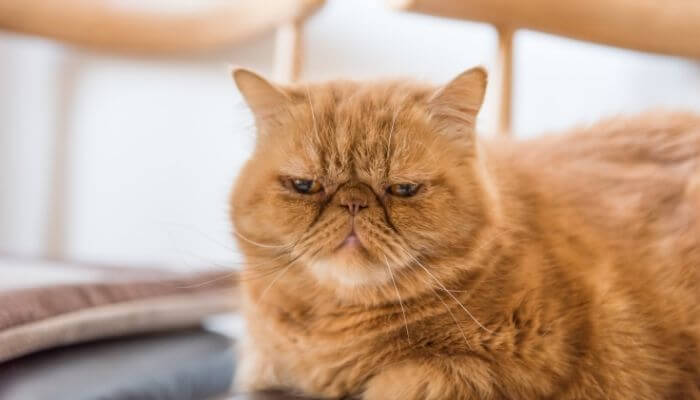
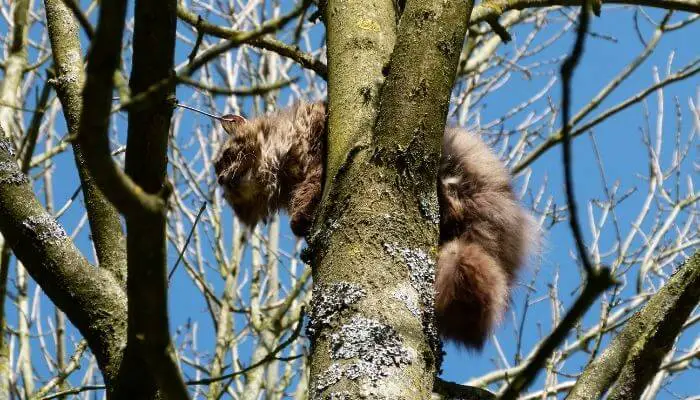

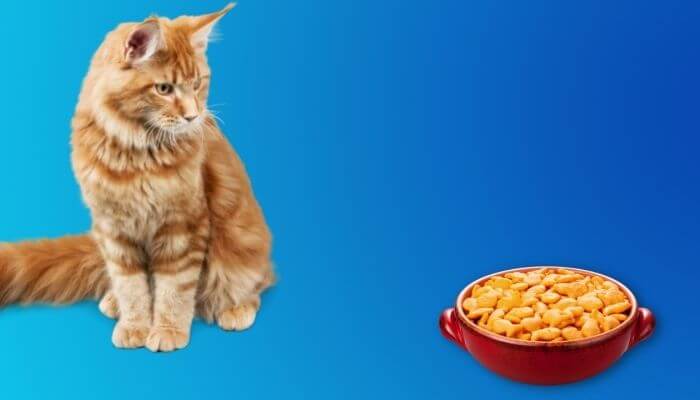
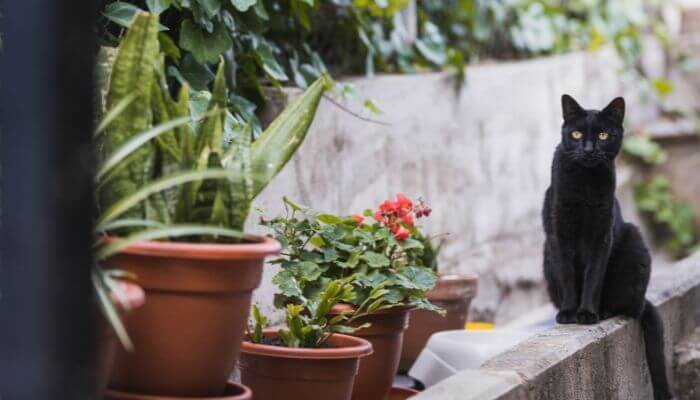
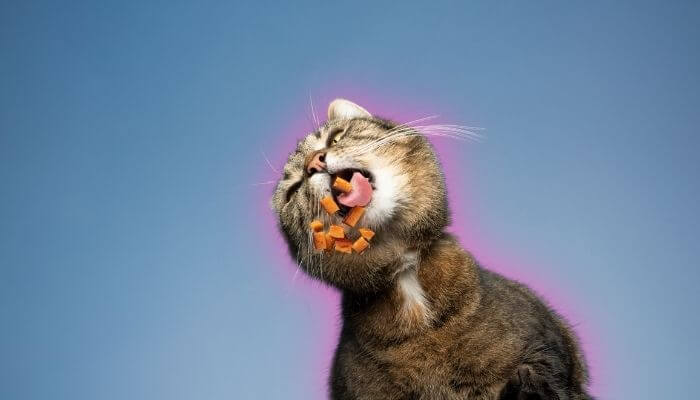
Leave a Comment